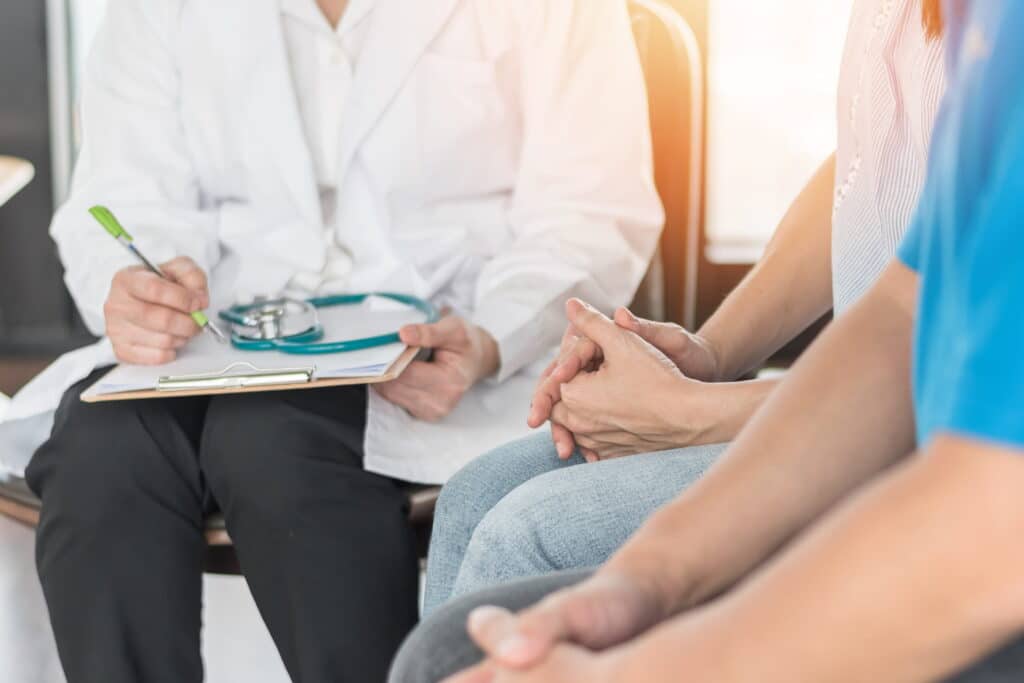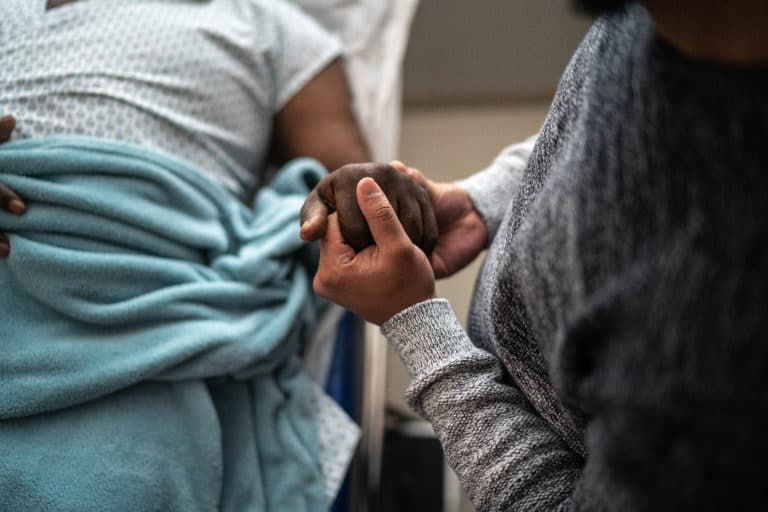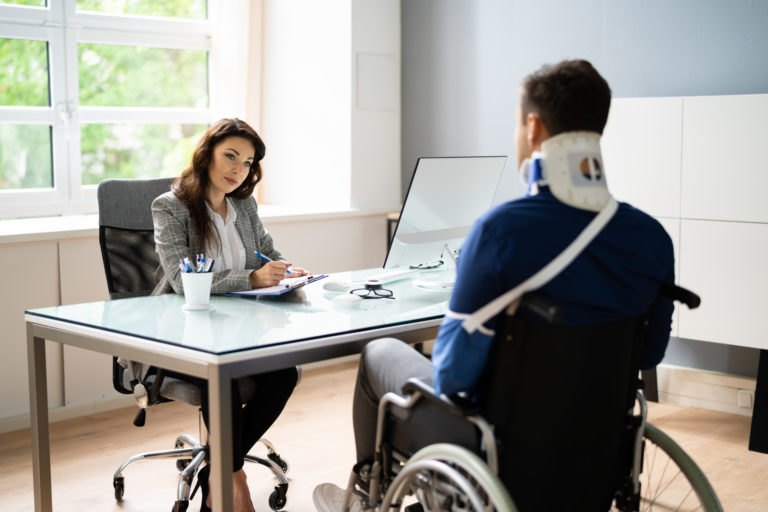Questions to Ask During a Family Meeting After a Catastrophic Injury

After a loved one experiences a catastrophic injury, you and your family will often have numerous questions regarding their condition, the extent of the injuries, their prognosis, and whether they will recover. There will usually be a family meeting to help ensure you get answers to all your questions.
WHAT IS A FAMILY MEETING?
A family meeting is a structured meeting that normally takes place in a conference room or other more private area of the hospital. It is not usually held in the waiting area or your loved one’s room.
The purpose of the family meeting is to sit down with the doctors, nurses, and other healthcare professionals caring for your loved one. They will update you on your loved one’s condition, outlook, and recommended steps. They should also inform you of what your expectations should be regarding recovery.
This meeting is also your opportunity to ask questions to ensure you fully understand precisely what is happening with your loved one and how their injuries are being treated. Prior to the family meeting, it is worthwhile to write down a list of questions you and other family members have that you would like answered.
When should I request a family meeting?
Usually, the healthcare professionals treating your loved one will arrange a family meeting within the first 24 to 48 hours after your loved one’s condition is stabilized. In cases where your loved one will be released or transferred to another care facility, the meeting may not occur. However, if your loved one is not being released or transferred and a meeting has not been scheduled within 48 hours, you should request one.
Are you having difficulties getting a family meeting scheduled? Contact our catastrophic injury lawyers for assistance today.
What should we do to prepare for a family meeting?
Besides writing down a list of questions, it can be beneficial to designate a family member as the primary contact and another family member as a secondary contact. This makes it much easier for your loved one’s healthcare team to communicate updates, changes, and other information you have requested.
What questions should we ask during the family meeting?
During the family meeting, you are free to ask any questions you may have. Some of the more common questions family members will want answers to include:
- What is the visitation policy, how many people can visit, and when?
- Can you bend the rules slightly if a particular family member cannot visit during normal visiting hours?
- As the loved one’s spouse, can I stay in their room with them?
- Can we get the names and contact details of our loved one’s healthcare team?
- What time do shifts change, and who will be caring for our loved one on the different shifts?
- How often will our loved one be checked on, and at what times?
- From your perspective, what is a reasonable request to keep us informed of our loved one’s condition?
- Could we receive an update every x-number of hours when our loved one’s condition is not life-threatening or urgent?
- What services does the hospital offer for religious or grief counseling, and how can we request these?
- What should our realistic expectations be based on our loved one’s current condition and the likelihood of their recovery?
- What progress should our loved one make between now and our next family meeting?
- Who should we contact if we have further questions before our next family meeting?
The family meeting can be emotional and difficult, depending on your loved one’s prognosis and injuries. However, it ensures you get answers to your questions and have a realistic outlook of their condition to help you make other important decisions.
How often should family meetings be held?

Depending on your loved one’s injuries, you may only require a single meeting. However, if they will be in the hospital for several weeks or longer, requesting weekly family meetings to touch base and get an update on their condition and prognosis is acceptable. These weekly meetings also allow you to ask additional questions that arise.
What else should we do?
Navigating the difficulties and challenges you must face, even though you may not want to, involves making a range of decisions for your loved one and your family. To gain better insight and tools you need during this time, we recommend reading or listening to Unthinkable by Kyle Bachus.
What should I do if my loved one’s injuries were caused by someone else?
If your loved one’s catastrophic injuries were caused as a result of negligence of another, you and your family have certain legal rights to seek monetary compensation for those injuries. At Bachus & Schanker, we understand this can be a complex and challenging time for you and your family.
However, consulting with a qualified catastrophic injury lawyer is in your best interest. The consultation is free, and our Elite Litigation Group of experienced lawyers is willing to meet at a location that is convenient for you, even in the hospital.
Our team will help you and your family, provide honest legal advice, and assist you with various financial, government, community, and insurance resources you may qualify for based on your specific needs and circumstances.
To schedule your free consultation and receive the comprehensive support and advocacy you deserve, please contact Bachus & Schanker today.
Sources:
What Are Catastrophic Injuries and How Are They Treated?. (2019).
An Overview of Negligence. (2022).





